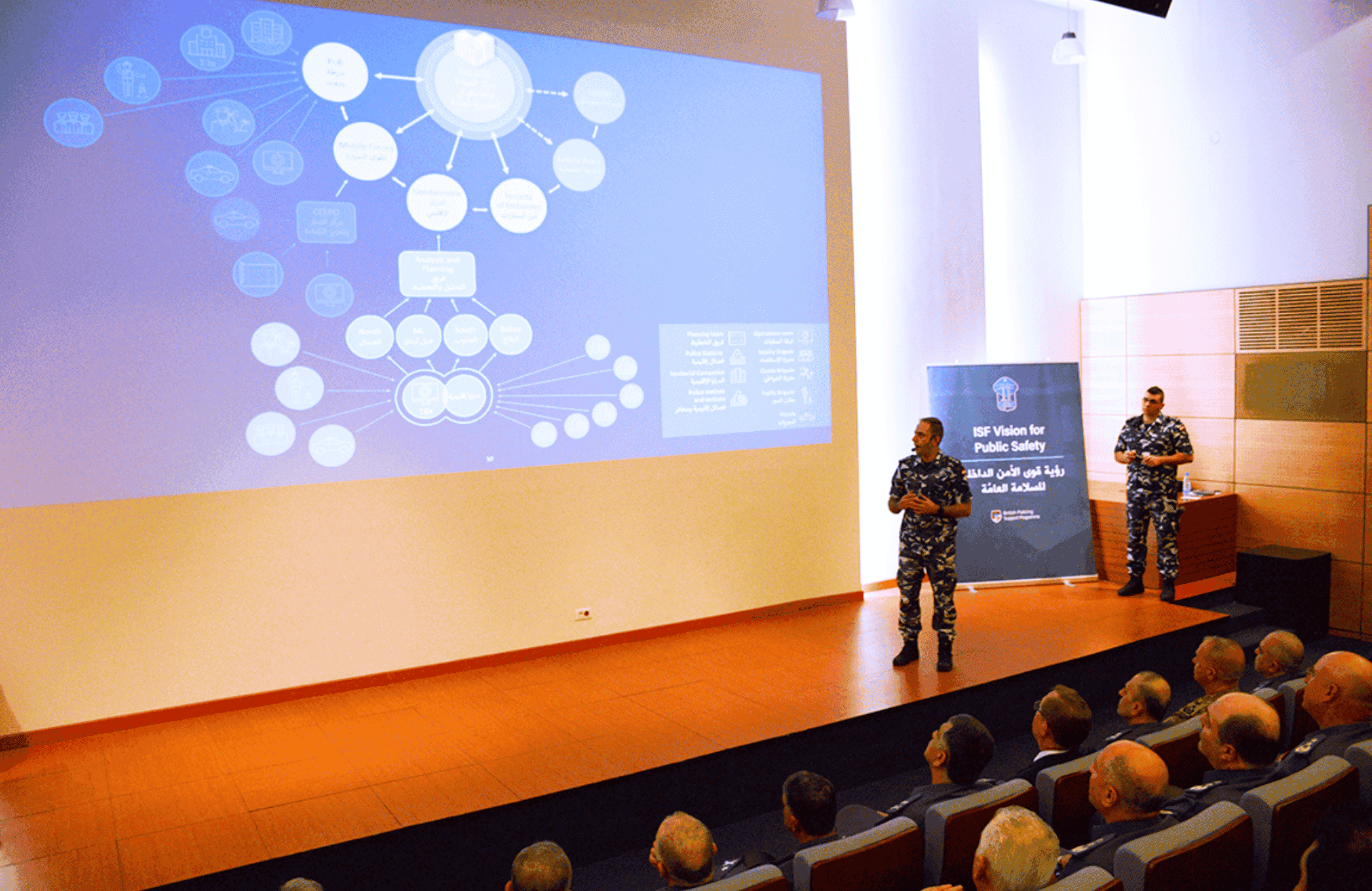Blog
Data analytics in policing and public safety in Lebanon
Siren is supporting the Internal Security Forces to use data analytics for public safety.

The Internal Security Forces announced 12 May its vision for using data analytics in policing to ensure public safety across Lebanon. The announcement took place in a ceremony at the ISF Academy in Aramoun attended by ISF General Director Major General Imad Osman and UK Ambassador to Lebanon Hamish Cowell.
The vision is founded on an intelligence-led approach to policing that Siren has been supporting the ISF to adopt. This approach uses data and analysis to inform the most efficient allocation and utilisation of resources. This contributes to the ISF’s organisational resilience in the face of shocks, particularly Lebanon's ongoing economic crisis - now in its fourth year.
During the event, seventy-three officers graduated from a year-long command course delivered by Siren, signifying the ISF’s commitment to professionalising its approach to upholding public order, while complying with human rights standards.
Data analytics in policing public order events
Speaking in a presentation on the ISF vision, several graduating officers explained that the course empowers commanders to make effective use of data and analysis in planning and managing public order events.
As part of these efforts, Osman added that the ISF has developed a nationwide network of Command and Control Centres with analysis and planning teams.
“The ISF is becoming increasingly intelligence-led to enhance public safety and serve citizens,” he said. “We’ve installed a network of Command and Control Centres across Lebanon in order to determine where crimes are happening and where the hotspots are, so we can focus our resources and patrols there to prevent crimes.”
Alongside training and building the physical and digital infrastructure for an increasingly intelligence-led approach to policing, Osman said that the ISF was advancing its strategic management capabilities. He gave the example of the development of the ISF’s Manual of Guidance for Public Order operations.
“We have the Manual of Guidance for a specific reason - to transform the ISF from a police force to a police service. The Manual of Guidance highlights in its preamble human rights principles, and national and international laws that enshrine these rights. This was our starting point; the Manual of Guidance’s main objective is to protect human rights,” he said.
Data analytics and police resilience
Since 2008, the UK via Siren has been a key supporter of the ISF in its mission to maintain security and stability in a human rights compliant manner. Cowell said at the event that the “fruits of that exceptional cooperation” were clear to see.
“It is critical to institutionalise mechanisms for human rights monitoring through regular mission debriefs, through the Human Rights Division, and through the Command and Control Centres,” Cowell said. “I am very pleased to see the advances the ISF has made to secure compliance with human rights standards and on principles governing the use of force.”
Cowell also explained the importance of police data analytics in enhancing the ISF’s organisational resilience.
“We are acutely conscious of the pressures the twin economic and political crises put on institutions like the ISF. At a time when pressures are increasing, resources are diminishing,” he said. “Digitalisation is not just a nice thing to have, it’s actually essential. The more that the resource constraints weigh on the ISF, the more important it is to have those digitalised, rapid and efficient systems.”